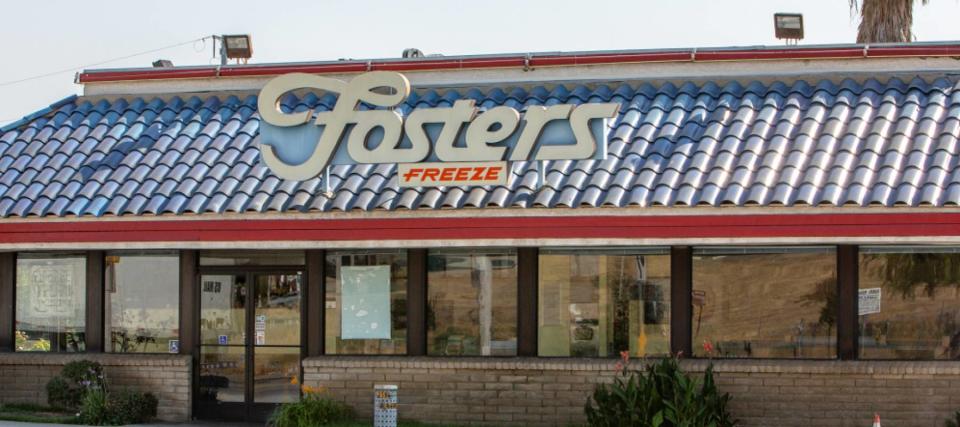California's minimum wage hike blamed for Fosters Freeze store closure — worker says she'd prefer the old wage
04/08/2024 08:09
The owner says small businesses "can’t survive," but is she right?
California's decision to increase the minimum wage for fast food workers to $20 an hour is primarily aimed at improving the standard of living for these workers in a state that's notoriously expensive.
However, there's concern that this new law, which went into effect on April 1, may have a more complicated impact on the local economy.
Don't miss
Commercial real estate has beaten the stock market for 25 years — but only the super rich could buy in. Here's how even ordinary investors can become the landlord of Walmart, Whole Foods or Kroger
Cost-of-living in America is still out of control — use these 3 'real assets' to protect your wealth today, no matter what the US Fed does or says
Car insurance rates have spiked in the US to a stunning $2,150/year — but you can be smarter than that. Here's how you can save yourself as much as $820 annually in minutes (it's 100% free)
A Fosters Freeze outlet in Lemoore shut down on Monday — the same day the new minimum wage kicked in — and its workers are now out of a job.
Some employees initially thought it was an April Fool’s joke.
“We had gotten a text in the group chat that we were shutting down, and I completely thought it was an April Fools joke,” former employee Jason Boado told KMPH Fox 26 News.
Unfortunately, it was not a joke. In a text to KMPH, Loren Wright, the owner of the Fosters Freeze, wrote, “Last thing I ever wanted was to close down. By Friday night I knew I was most likely not gonna be able to stay open but I didn't want to ruin their Easter Sunday.”
Small businesses ‘can’t survive'
According to Wright, the substantial rise in minimum wage has made it challenging for small businesses to stay afloat.
“Small businesses can't survive a 120% plus min wage increase over the last 10 years. We are all more broke than we were 10 years ago its clear raising min wage isn't helping,” he wrote.
California has seen a consistent and significant increase in its minimum wage over the past decade. In 2014, the state’s minimum wage was $9.00 an hour. Today, it’s set at $16 an hour, rising to $20 an hour for fast food workers.
Read more: These 5 magic money moves will boost you up America's net worth ladder in 2024 — and you can complete each step within minutes. Here's how
Monica Navarro, former assistant general manager of that Fosters Freeze location, told Fox Business that she and her former colleagues would prefer the old wage over being unemployed.
“From the people that I spoke to, my employees, we would have rather stayed at the wage that we did have before, just because now we don't have a job,” she said. She also observed the impacts of the new minimum wage on those fortunate enough to keep their jobs, stating, “Those who are still working in the areas around us that went up to $20 an hour, they got their hours severely cut and it's a lot less people working on shifts, so their jobs got a lot more difficult.”
Owners explore other options, majority in US support hikes
Navarro noted that the closure of the Fosters Freeze location is not an isolated incident, cautioning, “This is not the first business that’s closing, there's already a few local businesses for me that are closing, so I feel like this is just only the beginning.” Critics have long pointed out the unintended consequences of a minimum wage hike.
These fears are not unfounded.
The Wall Street Journal looked at state records and found that California restaurants had outlined plans to cut hundreds of jobs in the months leading up to the April 1 wage mandate.
However, the report adds that many restaurant operators are looking for other ways to cover the cost, like reducing hours, closing during slower parts of the day or serving menu items that take less time to make. Some are also choosing automation, which is something “Dirty Jobs” host Mike Rowe recently warned about.
Menu prices have risen at several locations in the Los Angeles area, per the New York Post. Scott Rodrick, who owns 18 McDonald’s locations in the state, told CNN he has raised prices about 5% to 7% in the last three months to anticipate the higher wages. Instead of cutting any worker hours, he also plans to grow his delivery operations and make decisions about large capital expenses, like postponing updating a dining room or putting off buying new grills or rooftop HVACs.
Nationwide, not all small business owners are against this trend. In fact, the majority (61%) surveyed earlier this year by CNBC said they support raising the minimum wage in their state, even though only one in five (19%) believe that it will help their business.
What to read next
Jeff Bezos and Oprah Winfrey invest in this asset to keep their wealth safe — you may want to do the same in 2024
Rich young Americans have lost confidence in the stock market — and are betting on these 3 assets instead. Get in now for strong long-term tailwinds
Jeff Bezos told his siblings to invest $10K in his startup called Amazon, and now their stake is worth over $1B — 3 ways to get rich without having to gamble on risky public stocks
This article provides information only and should not be construed as advice. It is provided without warranty of any kind.
